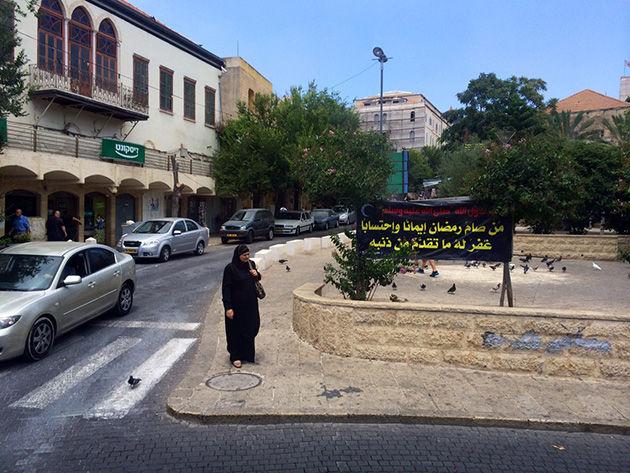Four hours north of the Israel-Gaza border, life took on a different rhythm for Texas A&M student Mary Frances Dorn.
“If the sirens go off, you are supposed to go into a shelter or go indoors,” Dorn said. “You have about 90 seconds to get inside. Stay inside for ten minutes and then you go about the rest of your day.”
Dorn is one of several Aggies who found themselves in Israel over the summer as tensions between Israel and Palestine boiled over once more into sustained fighting. According to BBC reports, 2,104 Gazans and 66 Israeli soldiers died in several weeks of fighting after the kidnapping and murder of three Israeli teenagers re-ignited the conflict.
Dorn is a statistics doctoral student who studied at the Weizmann Institute of Science in central Israel, near Tel Aviv. About a week before her seven-week study ended, violence in the region began to escalate, despite its four-hour distance north of the border.
Ashley Passmore, international relations professor, was also in Israel. As a fellow of Israel Studies, she was working with a group from the Schusterman Foundation on studying issues in modern Israel. She said the conflict started to escalate around the time of her arrival.
“When I got there, the three Israeli teenagers had been kidnapped,” Passmore said. “However, they hadn’t been found. Right when I arrived, they had been found as murdered. Because of that kidnapping, there had been a sort of idea that the Israeli defense forces had been in the West Bank, essentially questioning people and arresting people related to Hamas because they felt Hamas was behind the kidnapping and they were in the West Bank and presumably also in Gaza.”
Passmore was in Tel Aviv the first time she saw rockets.
“I was on the beach, actually,” Passmore said. “It was at the end of the day, it was about five o’clock. I couldn’t hear the sirens. People had warned me that there would be sirens, and it just sounds like an ambulance in the distance. But because of the beach and the wind I couldn’t hear it. I was with some friends and I just was floating, and I looked up in the sky and I heard, ‘Boom,’ and I looked up and there was just a little puff cloud.”
While Passmore said she stood there shocked for a few moments, others on the beach continued to go about their business.
“There were people playing Frisbee on the beach who sort of looked up, looked at each other and then the Frisbee game kept on,” Passmore said. “So there’s just a life that gets lived despite the conflict.”
Dorn said her research was not affected by the conflict and that communication with the university was uninterrupted. Passmore, on the other hand, said her focus changed as she observed more of the conflict.
“I think my research up to that point had been largely historical and I always was actually trying to avoid the contemporary conflict and the contemporary Israel,” Passmore said. “Now I think it’s still really complex and I still think it’s really something that I’m still just learning myself … I think more specifically what I’m interested in doing is looking at media. Looking at two things: One, how is Israel portrayed in international media, and secondly, Israel I think more than any other country in the world has a military and basically government which uses social media to portray its message.”
Dorn’s faculty advisor, statistics professor Clifford Spiegelman, has been to Israel multiple times. He said the campus makes sure to inform visitors on the correct procedure during an air raid.
“When we go to Weizmann, you’re told where to go,” Spiegelman said. “You’re always told what to do in this situation. It’s like if you went to a school in Oklahoma, they would tell you about tornado shelters.”
Dorn said she was told she could leave anytime she felt unsafe, but she said she was aware that the situation could change at any moment.
“You are a bit more aware that anything can happen, that things can change very quickly and things could become unsafe but it’s not something that you feel so critical of a situation,” Dorn said.
Conflict in Israel blocked some A&M research
August 31, 2014
0
Donate to The Battalion
Your donation will support the student journalists of Texas A&M University - College Station. Your contribution will allow us to purchase equipment and cover our annual website hosting costs.
More to Discover









